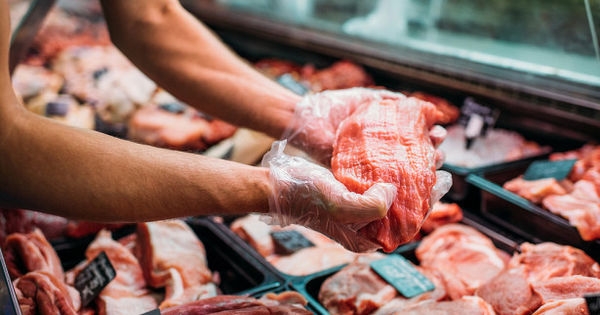Cholesterol is a fatty sterol present in the cell membrane of all body tissues, as well as in the blood plasma of all animals. High cholesterol is one of the major contributors to cardiovascular disease, which remains the number one cause of death worldwide.
Cholesterol in the form of plaque and other fatty deposits inside the walls of the arteries of the heart can accumulate, eventually forming blood clots. These blood clots at some point can “break away” from the walls of the vessel and lead to a heart attack. In this case, blood clots in the vessels of the brain (or leading to the brain) can cause a stroke.
However, in most cases, high cholesterol can be prevented. It can be controlled through a healthy diet, exercise, smoking cessation, limiting alcohol consumption, and weight control. Some Products especially dangerous and increase cholesterol levels. Therefore, their regular use should be avoided.
1. Bacon
Eating it for breakfast (like scrambled eggs and bacon) is a widespread occurrence. The product is crispy slices with a savory taste. At the same time, the breakfast is very satisfying. Unfortunately, this habit will not improve your health.
Bacon adds about 27 “excess” calories to a serving of food (if 2 slices are added to the dish).
2. Steak
The first thing to do if you want to avoid excess cholesterol is to choose the right steak, the right cut of meat product. If you buy shoulder steak (σπάλα), be aware that it has a lot more fat than other side steak (κόντρα μπριζόλα), which is slightly drier and tougher. Tenderloin or sirloin steak (brizola) is a softer meat, without a lot of fat, but quite expensive.
If you do buy a piece of meat with visible fat, you can remove it before cooking and immediately make your meal healthier while reducing your calorie intake at the same time.
3. Lamb
Red meat is often used as a synonym for “beef”. However, products such as lamb, goat, and pork are also red meats, as they contain a significant amount of myoglobin, which gives them a red color.
Most lamb chops contain about 11 grams of saturated fat per 100 gram serving, while lamb chops contain about nine grams of saturated fat per 100 gram serving. Red meat should not be eaten more than once a week. You may need to limit them even more if your cholesterol levels are abnormal, or if you have a family history of high cholesterol or heart disease.
4. Ribs
Not surprisingly, ribs made the list. The meat product usually has visible fat protruding throughout the meat. When cooked, it usually becomes tender and separates well from the bone. The bad news is that sliced lamb ribs contain 13 grams of saturated fat per 100-gram serving. If you ordered spare ribs (paidakya) at a restaurant, try sharing them with a friend (or even two!) and eating a meat dish with vegetables. So the ribs will become a little healthier. Many vegetables are known to contain several grams of fiber per serving of salad.
5. Sausage
Eating processed meats, such as sausages and sausages, can make it even harder to stabilize your cholesterol levels. Keep in mind that most smoked sausages contain 6 grams of saturated fat per 50-gram serving (and 350 to 500 milligrams of sodium—we don’t want to raise our blood pressure!). To keep your cholesterol levels under controltry plant-based sausages that are lower in fat, such as meat-free breakfast burgers (0.5 grams of saturated fat per 50-gram serving) or vegetable-based Simple Truth sausage sausages (1.5 grams of saturated fat per 1 serving). ).







More Stories
Vaccine to combat antibiotic resistance
Oral health: increased risk of cancer
Avian influenza virus found in cow's milk